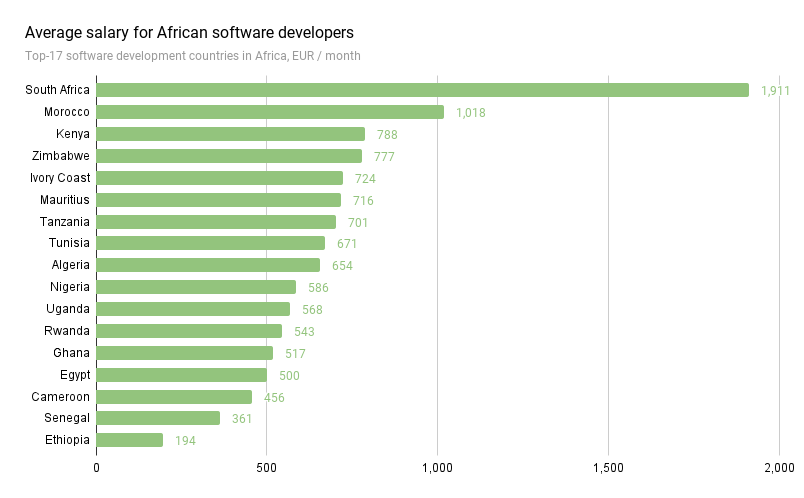advertisement
The Rise & Rise Of The African Developer

According to a report by Google Africa Developer Ecosystem Report, there’s an increase in the global demand for remote tech talent, which has directly translated to more remote opportunities for African developers. In the report, the number of African devs in the workforce went up 3.8 per cent to make up 0.4 per cent of Africa’s non-agric labor force.
The tech space in Nigeria and Africa at large has seen exponential growth in the last few years. Thousands of young people have recognised opportunities in tech and are working towards carving space for themselves. As the digital economy is growing, and more records are being set, the demand for even more people in tech is growing. UI designers, data scientists, and most especially, developers.
Nigeria alone was responsible for introducing approximately 5,000 new developers into the country’s talent pool in 2021. Morocco came next with 3,000 new developers, while Kenya, Egypt, South Africa, Tunisia, added 2,000 developers in each respective country’s talent pool.
advertisement
In regards to the total number of software developers in each country, South Africa comes out top with an approximated total of 121,000 software developers. Nigeria and Egypt come second-place with 89,000 each. The African developer community now stands at approximately 716,000.
Despite this large number, the African tech ecosystem still has a long way to go compared with other ecosystems around the world. Latin America alone had over 2 million developers according to this survey carried out in 2019. In California alone, there are about 628,414 developers according to this report.
Over half of the developers in Africa work for African startups and about 38 per cent work for start-ups outside the continent. Although the tech scene in Africa is still emerging, there’s a high demand for talent, especially in web and mobile app development. This has led to a lot of competition between start-ups home and abroad on hiring and retention of talent, and this competition has directly affected developers’ salaries.
advertisement

Developers are currently one of the highest-paid professionals in the tech industry, and this has led to an even more influx of young Africans into the tech scene. As the competition persists, salaries rise. In 2021, the annual salaries of senior and mid-level developers went up by 11 per cent and 9 per cent respectively.
The report also reveals that about 80 per cent of African-based developers are younger than 35 years, with the average being 29. This is interesting, as the global average age of software developers is 36.
advertisement
The internet economy in Africa is expected to reach $180 billion by 2025 and will account for 5.2 per cent of gross domestic product (GDP), according to the International Finance Corporation (IFC). By 2050, this number is expected to reach $712 billion, making 8.5 per cent of the continent’s GDP.
In Nigeria alone, the ICT industry contributed 17.92 per cent in 2021. The federal government expects that this will rise to 30 per cent by 2025.